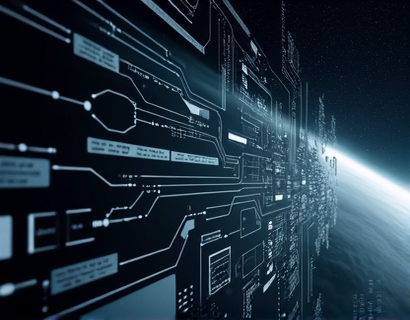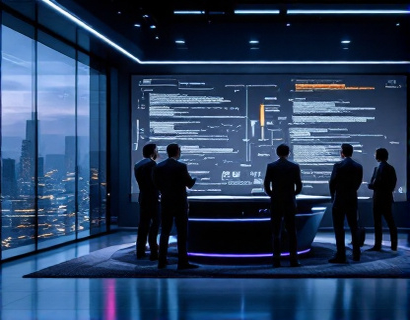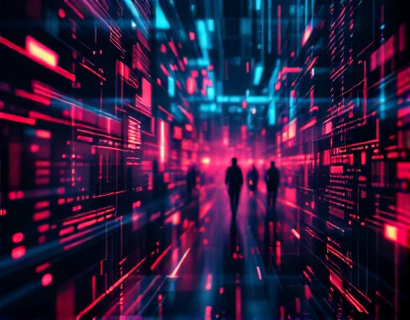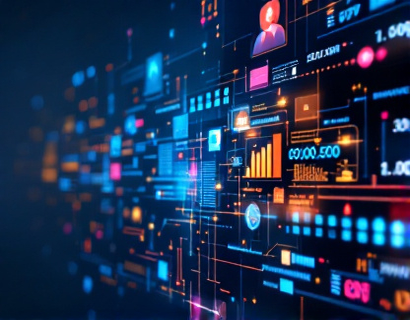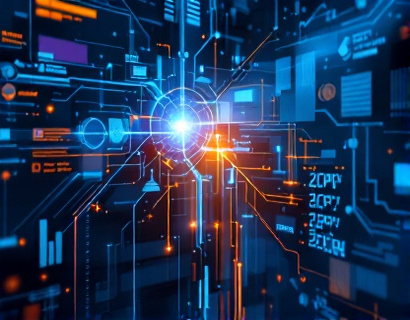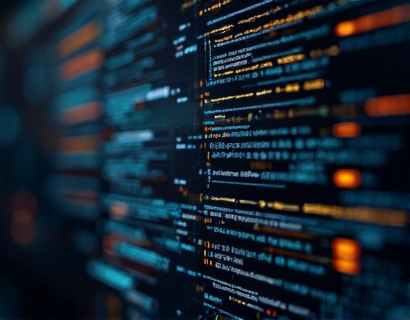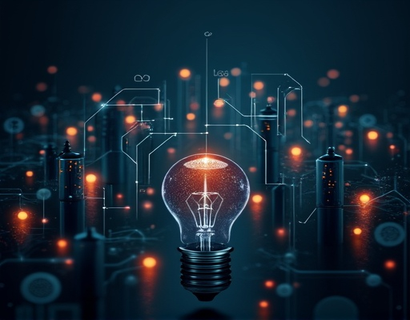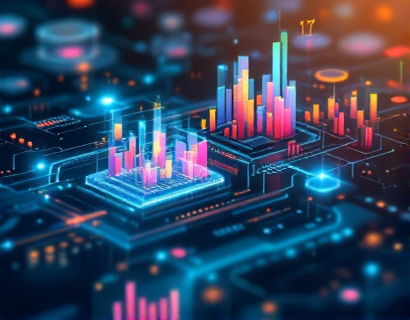Harnessing AI and Crypto: Transforming Ucosystem Applications for a Next-Gen Future
The intersection of artificial intelligence and cryptocurrency is giving birth to a new era of technological advancements, redefining how we interact with digital applications and services. This fusion, often referred to as techfusion, is creating innovative solutions that enhance efficiency, security, and user experience. As we explore this transformative space, it's essential to understand the key components and potential applications that are shaping the future of the digital landscape.
The integration of AI and crypto is not just a technological curiosity but a practical approach to solving complex problems. AI's ability to process vast amounts of data quickly and accurately, combined with the decentralized and secure nature of blockchain technology, creates a powerful synergy. This combination is leading to the development of applications that were once considered science fiction, such as autonomous smart contracts, predictive analytics for market trends, and enhanced security measures for transactions.
Autonomous Smart Contracts
One of the most promising applications of AI in the crypto space is the creation of autonomous smart contracts. Traditional smart contracts are predefined sets of rules executed on a blockchain when certain conditions are met. However, with the integration of AI, these contracts can become self-learning and adaptive. AI algorithms can analyze historical data and real-time information to optimize contract terms, predict potential issues, and even suggest improvements.
For instance, an AI-enhanced smart contract could dynamically adjust the terms of a supply chain agreement based on current market prices, weather conditions, or other relevant factors. This not only increases efficiency but also reduces the need for intermediaries, lowering costs and speeding up processes. The transparency and immutability of blockchain ensure that all parties have trust in the contract's execution, making it a robust solution for various industries.
Predictive Analytics for Market Trends
Another significant application is the use of AI for predictive analytics in cryptocurrency markets. Traditionally, trading in crypto has been based on technical analysis and market sentiment, which can be subjective and prone to errors. AI algorithms can process vast amounts of data from multiple sources, including social media, news articles, and transaction patterns, to identify trends and predict price movements with higher accuracy.
These predictive models can help traders make more informed decisions, potentially increasing their returns and reducing risks. Moreover, AI-driven trading bots can execute trades automatically based on these predictions, providing a hands-off approach to trading. This not only democratizes access to advanced trading strategies but also enhances the liquidity of crypto markets by increasing trading volume.
Enhanced Security Measures
Security is a paramount concern in the crypto world, and AI is playing a crucial role in fortifying defenses against cyber threats. Machine learning algorithms can detect anomalies in transaction patterns and user behavior, identifying potential fraud or hacking attempts in real-time. This proactive approach to security is far more effective than traditional methods, which often rely on post-incident analysis.
Additionally, AI can improve the security of private keys and wallet management. Biometric authentication, powered by AI, can provide a more secure and convenient way to access crypto assets. Voice recognition, facial recognition, and even behavioral biometrics are being integrated into wallet solutions, ensuring that only authorized users can access sensitive information.
Decentralized Finance (DeFi) Innovations
The DeFi space is one of the most exciting areas where AI and crypto are converging. DeFi platforms are leveraging AI to create more sophisticated financial products and services. For example, AI-driven lending platforms can assess creditworthiness more accurately by analyzing a wide range of data points, from social media activity to transaction history. This allows for more inclusive financial services, reaching individuals who might be underserved by traditional banking systems.
AI also enhances risk management in DeFi. By continuously monitoring market conditions and user behavior, AI can adjust parameters in decentralized protocols to mitigate risks. This includes dynamically adjusting interest rates, liquidity pools, and other critical components to maintain the stability and efficiency of the platform. Such innovations are making DeFi more accessible and reliable, paving the way for broader adoption.
User Experience and Personalization
The integration of AI is not only about backend processes but also about enhancing the user experience. AI-driven recommendation systems can personalize the user interface and suggest relevant services based on individual preferences and behavior. This level of personalization makes the crypto ecosystem more user-friendly and engaging, encouraging more people to explore and utilize these technologies.
Chatbots powered by natural language processing (NLP) are another example of AI improving user experience. These chatbots can provide instant support, answer queries, and guide users through complex processes, reducing the learning curve associated with crypto and blockchain technologies. This not only improves customer satisfaction but also increases the overall adoption rate of crypto services.
Challenges and Considerations
While the potential of AI and crypto integration is vast, there are several challenges that need to be addressed. One of the primary concerns is the regulatory landscape. As AI and crypto continue to evolve, regulators are struggling to keep pace, leading to uncertainty and potential legal hurdles. It's crucial for developers and businesses to stay informed about regulatory changes and ensure compliance to avoid legal issues.
Another challenge is the technical complexity involved in integrating AI with blockchain technology. Developing robust and scalable solutions requires expertise in both domains, which can be a barrier for many projects. Collaboration between AI researchers, blockchain developers, and industry experts is essential to overcome these technical challenges and drive innovation.
Privacy is also a significant concern. While AI can enhance security, it can also be used to invade privacy if not implemented correctly. Ensuring that AI systems respect user privacy and comply with data protection regulations is paramount. Transparent practices and user-controlled data management are key to building trust in AI-driven crypto applications.
Future Outlook
The future of AI and crypto integration holds immense potential. As technology advances, we can expect even more sophisticated applications that further blur the lines between these two fields. Quantum computing, for instance, could revolutionize AI by providing unprecedented processing power, enabling more complex and efficient algorithms. This could lead to breakthroughs in areas such as cryptography, making transactions even more secure and transactions faster.
Moreover, the convergence of AI, crypto, and other emerging technologies like the Internet of Things (IoT) and 5G networks will create a more interconnected and intelligent world. Smart cities, autonomous vehicles, and personalized healthcare are just a few examples of how this techfusion can transform various aspects of our lives.
In conclusion, the fusion of AI and crypto is not just a trend but a fundamental shift in how we approach technology and digital interactions. By leveraging the strengths of both fields, we can create more secure, efficient, and user-friendly applications that redefine the digital landscape. As we continue to explore and innovate in this space, the possibilities are endless, promising a brighter and more connected future.



